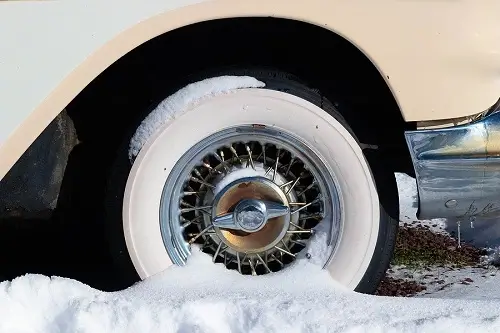During the long winter months, classic car owners know it’s better to store their cars. After all, frigid temperatures, snow, salt, and slippery roads aren’t good for these vehicles. Winter storage can help extend these cars’ longevity, avoid expensive repairs, and prepare them for spring.
However, letting a classic car (or any vehicle) sit for months often comes with issues. But you can minimize such problems by taking extra care before storing your vehicle.
Check out some of the best practices for winter storage of classic cars.
1. Lube What Needs to be Lubed.
It helps to schedule classic car services on the day or a few days before you store your classic car for winter. Such tasks may include:
- Changing into fresh oil. This should protect the engine from corrosion while in storage. After pouring fresh oil, run the engine for about 10 minutes to circulate the oil. Don’t forget to change the oil filter, too.
- Lubing other vehicle components. Aside from an oil change that’ll protect your engine, you should ensure other vehicle parts (like chassis components) are well-lubed as well.
- Spraying the weatherstrip in windows and doors with silicone spray or dry Teflon lube. This should keep the weatherstrip seal from dry rotting.
- Spraying the door hinges and hood latch with white lithium grease.
2. Use a Fuel Stabilizer.
The best way to protect the fuel injectors, pump, and other fuel components is to drain the tank and fill it with fuel. While this should help reduce contamination and rusting, this is an expensive proposition, especially when you must bring your car back home from the fuel station.
Alternatively, you can add a bottle of fuel stabilizer to the tank before topping the tank off. Remember to drive the vehicle for at least 15 minutes to ensure the fuel stabilizer goes through the entire fuel system.
3. Take Care of Tires.
Tires tend to develop a flat spot if they sit in one position for several months. To prevent such a thing, place the vehicle on jack stands so all tires are off the ground. You should also let the air out of the tires until they have about 25 psi in each tire.
4. Observe Car Battery Maintenance.
Car batteries hate the cold. They can “die” during winter and freeze. One best practice to prevent this is to remove the battery and store it in a dry, warm place.
But if you don’t want to remove the battery, you can attach a battery tender. If you’re going this route, choose one with a self-minder. That’s because the tender will shut off when the battery has a full charge and will resume charging when it senses the charge is getting low.
5. Cover Your Classic Car.
If you store your vehicle inside a garage, cover it with a sheet to protect it from dust.
If you are storing the car outside, choose a cover that’s water-resistant, custom-fitted, and breathable. Do not use a waterproof tarp, as it traps condensation and water between the cover and the vehicle, which can cause rust.
6. Wash and Wax the Vehicle.
Handprints, bird poop, dirt, dust, and whatever else gets onto the car all have acid and will eat through the paint. Fortunately, you can protect the paint job by washing and waxing the vehicle before storing it.
You can wash and wax your car yourself or hire a professional to do the job. If you’re doing it, just make sure you use only quality products.
7. Check and Change the Coolant.
If you haven’t changed the coolant recently, ask the auto technicians at Bock Auto to test it and top it off if needed.
If the coolant is no longer ok (for example, it’s contaminated or diluted), be sure to flush the cooling system before replacing the coolant. This should all keep the engine block from freezing.
8. Check and Change the Brake Fluid.
Brake fluid is hygroscopic—it will readily absorb water. Water can damage brake components. If this happens, you got no other option but to have the brake system completely rebuilt.
Many vehicle manufacturers suggest brake fluid flush and exchange every two years. But with older cars, this should be done annually. Doing so will ensure the brake system will be in top condition, even when vehicles are in winter storage.
Bock Auto Can Help Winterize Your Classic Cars and Prepare Them for Winter Storage
At Bock Auto in Amagansett, NY, we can help with winterization and maintenance to ensure your classic cars endure winter and be ready to go once spring arrives.
Contact Bock Auto by calling (631) 267-5631 or filling out this form. You can also drop by our shop at 541 Montauk Highway, Amagansett, NY 11930.


